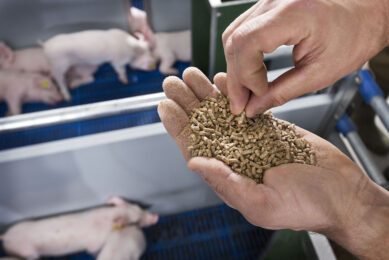A matter of definition
One of the main reasons the US is putting so much (tax)money into biofuels is their desire to become less dependent on mineral oil (read: Arab countries). The infant biofuel industry is supported with subsidies and tax rebates.
One of the main reasons the US is putting so much (tax)money into biofuels is their desire to become less dependent on mineral oil (read: Arab countries). The infant biofuel industry is supported with subsidies and tax rebates.
However, strange things occur in this effort. Take for example biodiesel. This fuel is relatively moderately used in the US, but has a high consumption rate in Europe.
There is a huge market in Europe for (bio)diesel. Countries in the EU have committed themselves on the percentage use of fuels made from renewable sources.
Many EU-countries are not able to produce these volumes so they have to import biodiesel. The US appears to be an important supplier of biodiesel to Europe.
So, on the one hand the biofuel industry is competing for raw materials with the feed industry and on the other hand biofuels are exported. How can that be?
Well, US companies receive a tax credit for biofuel exports if they blend petroleum with fuels made from commodities such as soybeans and other crops.
EU-officials are lobbying US Congress to close what they say is a tax loophole that allows US biodiesel to be dumped in several European countries.
In the US the National Biodiesel Board (NBB) is lobbying fiercely to ensure the survival of this tax credit.
The exported biofuels are displacing European crops that would otherwise be converted into biodiesel in European countries.
In fact the current policy cheats US taxpayers, who are subsidizing biodiesel exports to Europe. The subsidies do not contribute in lowering US dependence on foreign oil since the biodiesel is just sent to Europe.
This year already 700,000 tonnes of American biodiesel have been imported into the EU; almost eight times the volume of 2006.
The fuel, which might be 99.9% crop-based and only 0.01% petroleum (a splash of petroleum is already enough to qualify for the tax credit), is shipped to Europe and sold at a lower price than the raw materials made by the European industry for biodiesel production.
Smells like dumping to me. NBB, however, argues that the rise in exports simply reflects the higher demand for biodiesel in the EU.
Denying the export tax credit would close the free flow of trade, it said, "endangering a US industry that has made tremendous strides in recent years."
See here NBB’s definition of free trade. So it is a matter of definition. Free trade of biofuels is only free trade if it is subsidised and can be dumped outside the US to distort foreign markets.
Now I also understand why Korean farmers ferociously protested against the free-trade-agreement that the US made with their government.
Related links:
Join 26,000+ subscribers
Subscribe to our newsletter to stay updated about all the need-to-know content in the feed sector, three times a week. Beheer
Beheer









 WP Admin
WP Admin  Bewerk bericht
Bewerk bericht